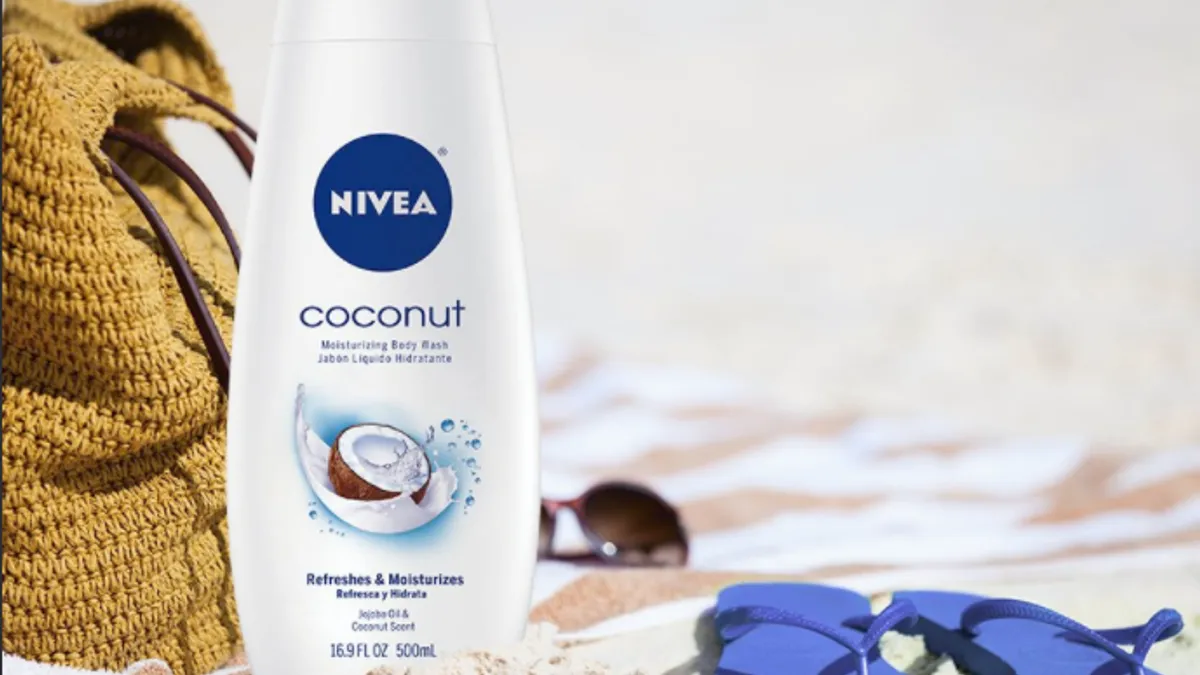Dive Brief:
- Nivea is the latest personal care brand to face strong social media backlash for an ad deemed racially-insensitive, as reported by The Drum. A recent video spot marketed to African women positioned the brand's Natural Fairness Cream as a way for people with darker complexions to achieve a lighter skin tone.
- The offending ad, captured by Vitae London's CEO William Adoasi on Twitter, features a black actress using the product, with a voiceover narration explaining how it will restore her skin to its natural fairness. A male then compliments the woman on her beautiful skin.
- Nivea's owner Beiersdorf AG and a spokesperson offered an apology via a statement to The Drum, which read, "Our intention is never to offend our consumers. We acknowledge every consumer's right to choose products according to their personal preferences, and we are guided by that to provide them with high-quality skin care product choices."
Dive Insight:
Positioning lighter skin as better or more desirable for consumers reads as offensive in any case, and yet this isn't the first time Nivea has missed the mark with tone-deaf messaging. An ad earlier this year faced flak for a tagline that read "White is purity," as The Drum noted. Beyond not learning a lesson from its own mistakes, Nivea also follows Unilever’s Dove, which weathered a similar social media backlash just a few weeks ago for an ad deemed racially-insensitive. That spot wasn's Dove's first fumbling of race either, as a 2011 ad that showed a "before and after" picture, where women became progressively whiter, also came under intense scrutiny.
These controversies point to how far behind the ball many marketers are falling when it comes, not just to showcasing diversity in their marketing, but doing so in a way that's authentic-feeling and brings a fair and informed perspective. Several recent industry initiatives have put out the call for more equal representation in both consumer-facing marketing and behind-the-scenes teams at brands and agencies. Around this time last year, the Association for National Advertisers announced an Alliance for Inclusive and Multicultural Marketing intended to further diversity in marketing and advertising, for example.
Such efforts meet a growing consumer demand for broader representation. A report released in March by Google called "The Case for Diversity in Advertising" found 75% of surveyed black millennials would like to see brands better represent diversity in their advertising and are more likely to consider a brand that positively reflects black culture.














